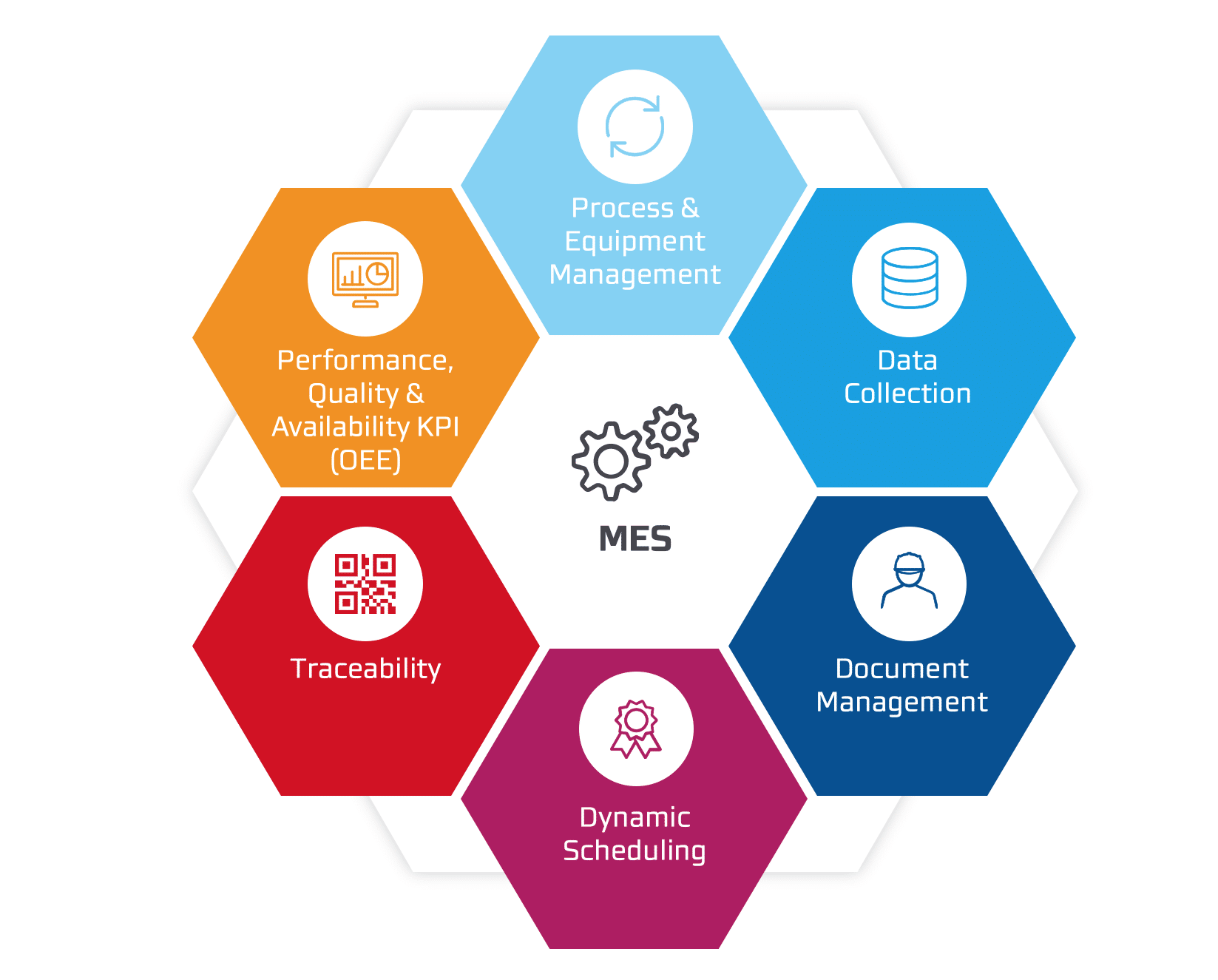MES Market Overview
The Modern Manufacturing Execution System Market share has seen significant growth over the past decade, driven by rapid advancements in industrial automation and the increasing adoption of smart manufacturing technologies. MES is an integral part of the manufacturing process, providing real-time data collection, monitoring, and control, which enhances productivity, efficiency, and compliance with regulations. These systems bridge the gap between enterprise resource planning (ERP) and the shop floor, enabling manufacturers to optimize production processes, reduce downtime, and improve product quality. The market for MES is expanding as industries such as automotive, aerospace, pharmaceuticals, and food and beverages seek to streamline their operations and stay competitive in a dynamic global market.
Major Market Players
Several key players dominate the MES market, contributing to its robust growth and innovation. Companies like Siemens AG, Rockwell Automation, Schneider Electric, ABB Ltd., and Honeywell International Inc. are at the forefront, offering comprehensive MES solutions that cater to diverse industry needs. Siemens' SIMATIC IT, for instance, is widely recognized for its flexibility and integration capabilities, while Rockwell Automation’s FactoryTalk ProductionCentre offers a seamless connection between the production floor and business systems. Schneider Electric’s MES solutions emphasize sustainability and energy efficiency, aligning with the increasing demand for green manufacturing practices. These major players invest heavily in research and development to stay ahead of the curve, continually enhancing their product offerings to meet the evolving requirements of the manufacturing sector.
Get a Sample PDF of the Report at:
https://www.marketresearchfuture.com/sample_request/1094
Market Segmentation
The MES market can be segmented based on component, deployment type, industry vertical, and region. By component, the market is divided into software and services. Software solutions include on-premises, cloud-based, and hybrid MES, each catering to different operational preferences and scalability needs. Services encompass consulting, integration, and maintenance, which are critical for the successful implementation and functioning of MES.
Deployment type segmentation includes on-premises and cloud-based systems. On-premises MES offers control and customization but requires significant initial investment and IT infrastructure. In contrast, cloud-based MES provides flexibility, lower upfront costs, and scalability, driving its adoption among small and medium-sized enterprises (SMEs).
Industry vertical segmentation highlights the application of MES across various sectors such as automotive, aerospace, defense, pharmaceuticals, food and beverages, electronics, and more. Each industry has specific requirements and regulatory standards, which MES solutions are tailored to address. For instance, the pharmaceutical sector relies heavily on MES for stringent compliance with Good Manufacturing Practices (GMP) and traceability.
Market Drivers
Several factors drive the growth of the MES market. The push for digital transformation in manufacturing is a significant driver, as companies strive to enhance operational efficiency and agility. The adoption of Industry 4.0 technologies, including IoT, artificial intelligence, and big data analytics, is propelling the integration of MES to create smart factories. Additionally, the need for real-time visibility and control over manufacturing processes to reduce downtime, optimize resource utilization, and ensure quality compliance is boosting the demand for MES.
Moreover, regulatory pressures in industries like pharmaceuticals and food and beverages necessitate stringent monitoring and documentation, which MES effectively provides. The growing trend towards sustainable manufacturing practices and the need to minimize waste and energy consumption also drive MES adoption, as these systems enable precise monitoring and control over production processes.
Market Restraints
Despite its promising growth, the MES market faces several challenges. High implementation costs and the complexity of integrating MES with existing IT and operational systems can be significant barriers, especially for small and medium-sized enterprises. The transition from traditional manufacturing processes to MES requires substantial investment in infrastructure, training, and change management, which can be daunting for some organizations.
Data security and privacy concerns also pose a restraint, particularly with the increasing adoption of cloud-based MES solutions. Ensuring robust cybersecurity measures and compliance with data protection regulations is critical to mitigate these concerns. Additionally, the rapid pace of technological advancement means that MES solutions must continually evolve, requiring ongoing investment in upgrades and maintenance.
Regional Analysis
Geographically, the MES market is segmented into North America, Europe, Asia-Pacific, Latin America, and the Middle East and Africa. North America leads the market due to its advanced manufacturing sector, high adoption of smart technologies, and significant investment in research and development. The presence of major MES providers in this region also contributes to its dominance.
Europe follows closely, driven by stringent regulatory requirements, particularly in the automotive and pharmaceutical industries, which necessitate advanced MES solutions for compliance and efficiency. The Asia-Pacific region is expected to witness the highest growth rate, fueled by rapid industrialization, the rise of manufacturing hubs in countries like China and India, and increasing adoption of automation technologies.
Latin America and the Middle East and Africa regions are gradually embracing MES as they modernize their manufacturing sectors to enhance competitiveness and productivity. However, the adoption rate is relatively slower compared to other regions due to economic constraints and varying levels of technological infrastructure.
The Modern Manufacturing Execution System market is poised for substantial growth, driven by technological advancements, regulatory pressures, and the ongoing quest for manufacturing excellence. While challenges exist, the benefits of MES in enhancing productivity, compliance, and sustainability make it a crucial component of the future manufacturing landscape.
Browse In-depth Market Research Report:
https://www.marketresearchfuture.com/reports/modern-manufacturing-execution-system-market-1094
